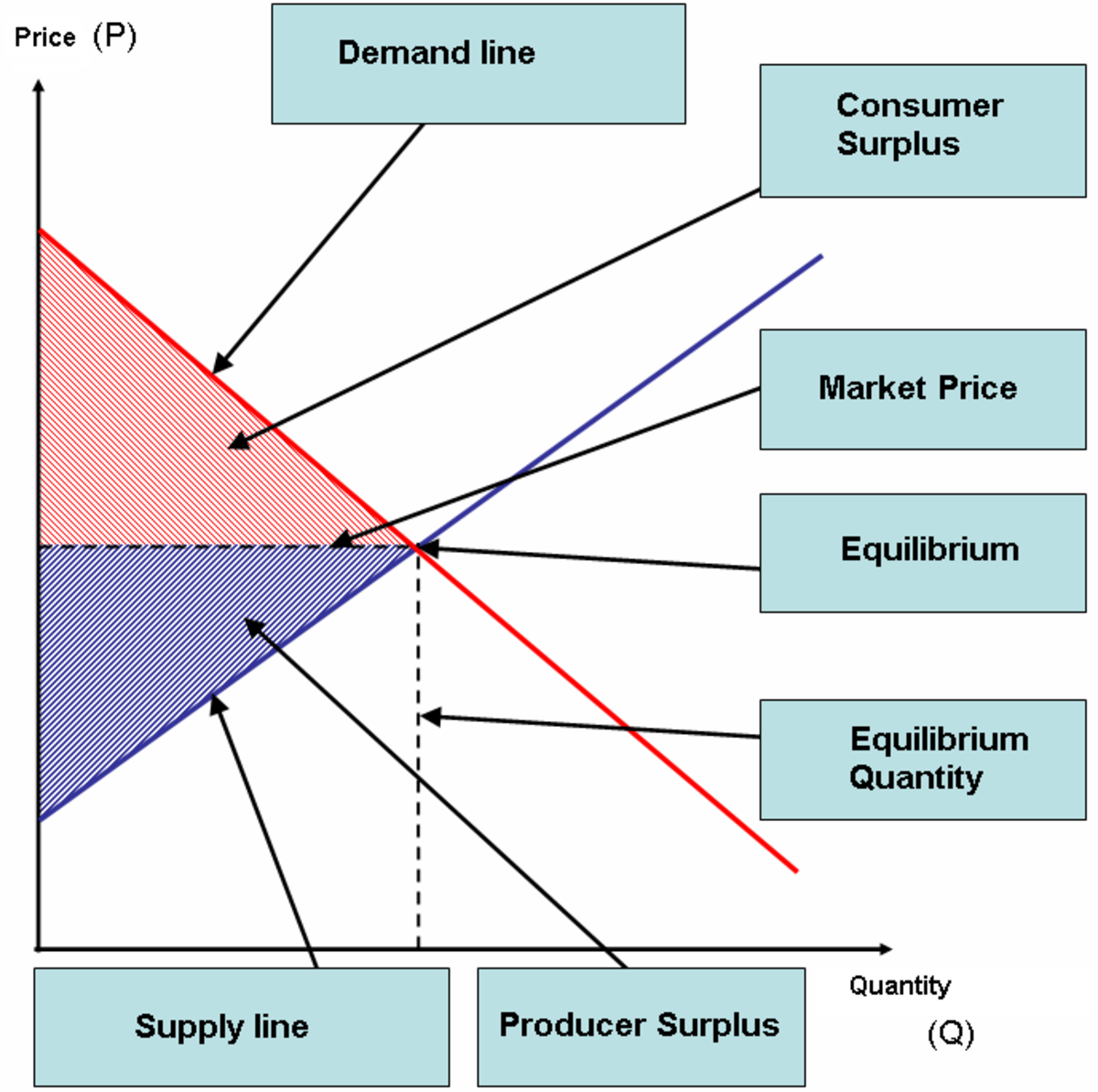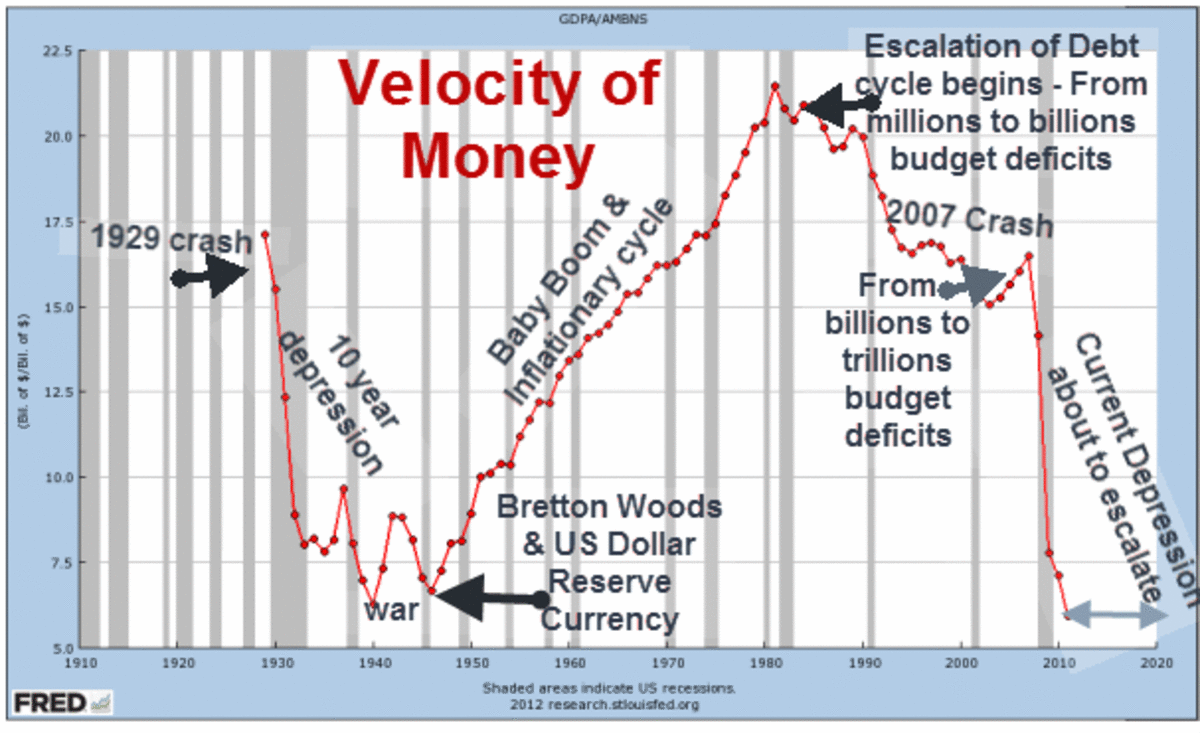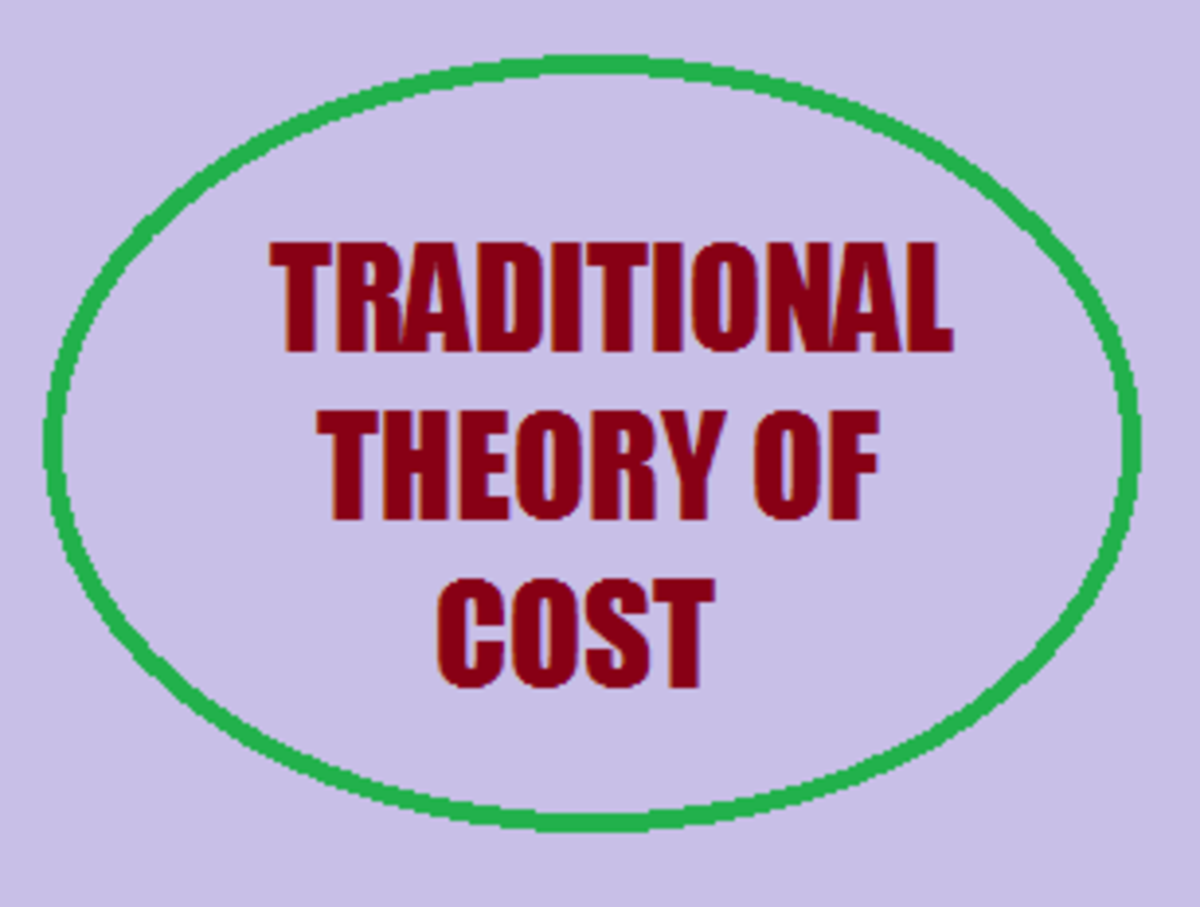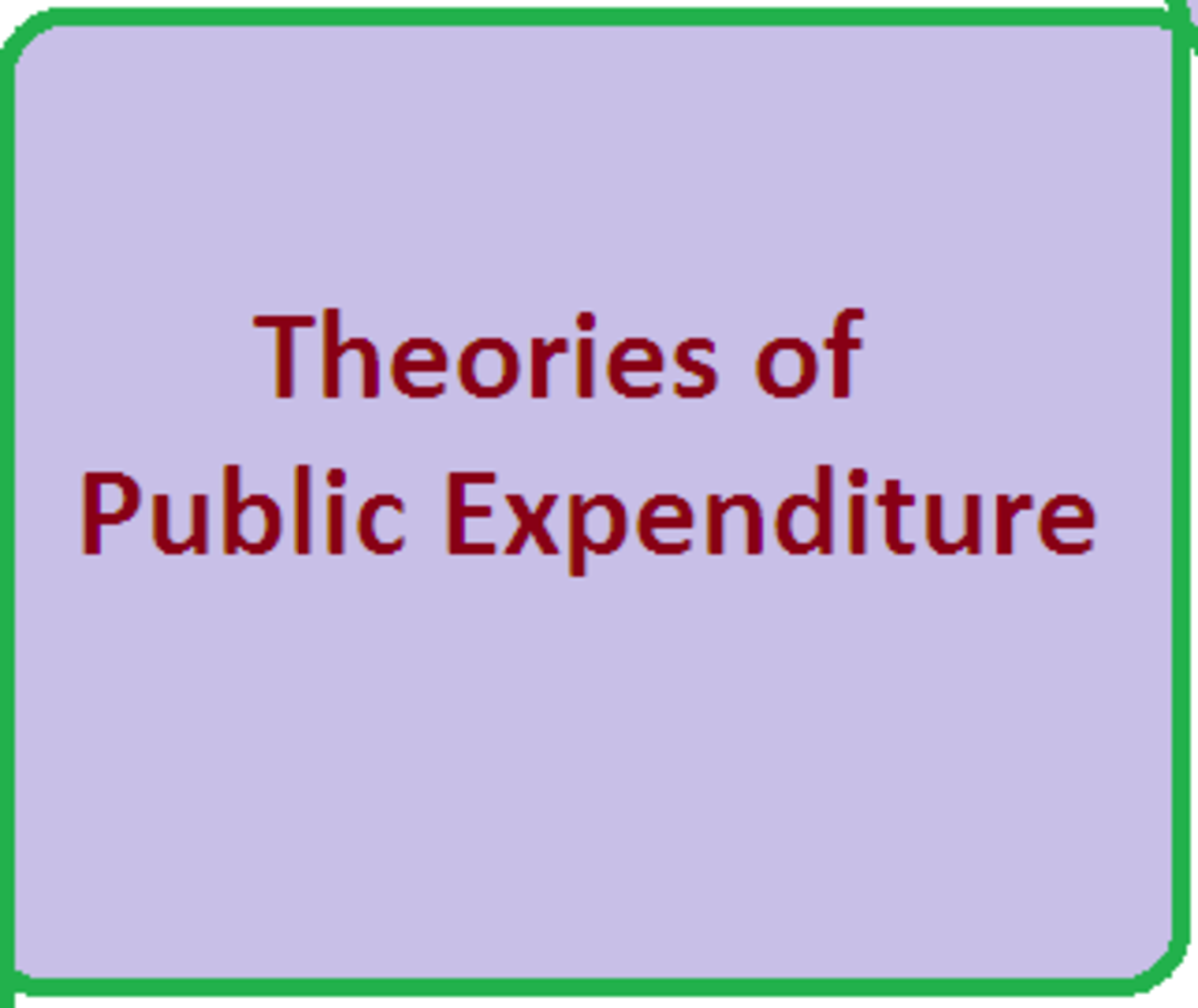Economics For Beginners: What Is Economics

Before I continue with the rest of the Economics for Beginners series, I think it’s important that I take some time to explain what Economics actually is, since there seems to be a great deal of confusion both here on HubPages, and on the Internet in general.
In this article, I’ll cover the basics of what Economics is, and more importantly, what it isn’t. Hopefully, by the end of this article, you’ll have a better understanding of just what goes into making the economy work, the role economists’ play, and how all of it affects you.
So What Is Economics?
In life, there are things we need, and things we want. For example, to live we need: food, shelter, clothing, and NFL Football… okay, so maybe that last one is more of a want, but you get the idea. Speaking of “wants”, we have a bunch of those too; we want things like: cars, cellphones, televisions, and other things that make life easier and more enjoyable.
In order to get the things we need and want, we have to use what’s called Scarce Resources. A Scarce Resource is something that we can use more of than what we have available; the two biggest examples of this are time & money. Using these resources, whatever they may be, we have to figure out the best way to use what we have, to get what we need/want; the study of how we make those decisions is Economics.
Macro & Micro

Macro Vs. Micro
When it comes to economics, there are two basic flavors:
Microeconomics: Is the study of individual buyers and sellers in specific markets
Macroeconomics: The study of overall economic factors, conditions, and systems.
To put it simply, Microeconomics is the “specifics”, and Macroeconomics is the “big picture”.
If I wanted to study how a customer’s buying habits helped determined which products my local Starbucks decides to carry, then I would be studying Microeconomics. If, on the other hand, I wanted to study how interest rates were affecting the economy in the United States, then I’d be studying Macroeconomics.
The vast majority of economic news you hear from day to day is concerning macroeconomics.
Time To Get Schooled
It’s common to hear people talk about different “schools of economics”. What they’re referring to are the different economic philosophies which, unless you’re an economist, or are studying to be an economist, you don’t need to worry about. The only reason I’m even mentioning them here is to clear up some of the confusion concerning them.
Keynesian Economics: Developed by John Maynard Keynes, it basically says that Government Spending can keep the economy healthy.
Austrian Economics: Not to be confused with the economics of Austria, Austrian Economics is the theory that the free market has natural cycles, and any intervention or manipulation of these cycles, only creates trouble.
Supply-Side Economics: Also known as “Reaganomics”, or “Trickle-Down-Economics”. Don’t be fooled: this is more of a political theory than an economic one. It’s essentially the idea that Supply drives Demand.
These are just a few of the dozens of different economic schools of thought out there. Again, unless you’re interested in economics as a profession, don’t worry about them.
It Really Is, I Promise...
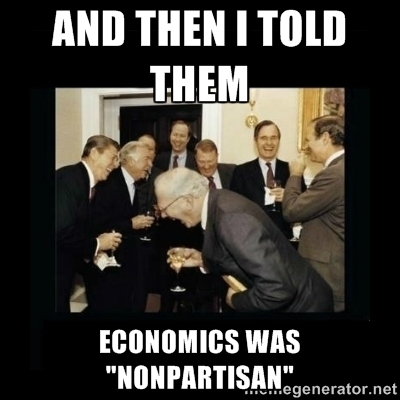
What Economics Isn’t
Okay, now for the one that’s sure to have the comments section below going crazy… ready… here goes: Economics is not the same as politics, in fact, Economics is completely nonpartisan.
That’s right, I said it: “economics is completely nonpartisan”. Economics is simply a process for reading and analyzing existing data: nothing more, nothing less. Economics is no more political than Algebra or Calculus.
Now I know, even as you’re reading this, some of you are frantically scrolling to the bottom to tell me just how wrong I am, and how economics is 100% political; well trust me on this one dear readers, it’s not. An Economist can certainly be guilty of partisan bias, that’s undeniable, but economics itself is completely neutral.
So why is there so much confusion about economics? There are two main reasons: most people don’t understand the difference between positive and normative statements in economics, and too many economists don’t specify whether the statements they’re making are normative or positive. Now for the next logical question: “what the hell are positive and normative statements, and what’s the difference”?
Positive Statements: Positive Statements are objective statements, based on observable facts. Don’t get confused by the term “positive”, it doesn’t necessarily mean “pleasant”; Positive Economic statements are neither good news nor bad news, they’re simply statements of fact.
Normative Statements: Normative Statements are subjective, and are based on value judgments. The easiest way to remember the difference is that Normative Statements are opinions, not necessarily facts.
For example: “The time is 10am” is a Positive Statement, whereas “10am is too early for a cocktail” is a Normative Statement.
What Do Economists Actually Do?
The simple answer is: Economists read and evaluate data, and then make recommendations based on their analysis. This explanation would tend to lead you to believe that all economists pretty much agree on current economic conditions, since they’re all reading and evaluating the same set of data. Oh how wrong you’d be.
You see, the problem is most economists disagree on what the data actually says in the first place. It’s like having four people in a car trying to figure out the best route to take to drive to New York City, when they can’t even agree if they’re starting in Los Angeles, Miami, Chicago, or Seattle. Until you know where you are, it’s impossible to know how to get where you’re going.
For the most part, Economics is all just “best guess” anyway, since you never know what’s going to happen to completely change the current economic climate; economic forecasts looked a lot different on September 10th, 2001 than they did on September 12th. It’s because of this that an economist needs to be part mathematician, part anthropologist, part historian, part philosopher, and part fortune teller.
So What Does All Of This Mean To Me?
Economics is important for everyone, whether you study it or not. Anytime you buy or sell anything, economics comes into play. Those who know how to understand how the economy works, and how to evaluate the current economic climate, can make much more informed decisions when it comes to spending their hard earned money.
- Knowing what’s going on with interest rates can help you when deciding to finance a major purchase.
- Knowing how to evaluate the difference between supply and demand can help you buy much more effectively, saving you hundreds, if not thousands, of dollars a year.
- Being able to understand current economic conditions can help you determine the best ways to invest for your future.
There really is no end to the benefits you can derive from having even a basic knowledge of economics.
The Economics For Beginners Series.
- Economics For Beginners: Supply And Demand
We've all heard the terms Supply & Demand before, but how much do you really know about one of the fundamental principals of economics? In this article, we'll cover the basics everyone needs to know.
© 2013 Shawn McIntyre

